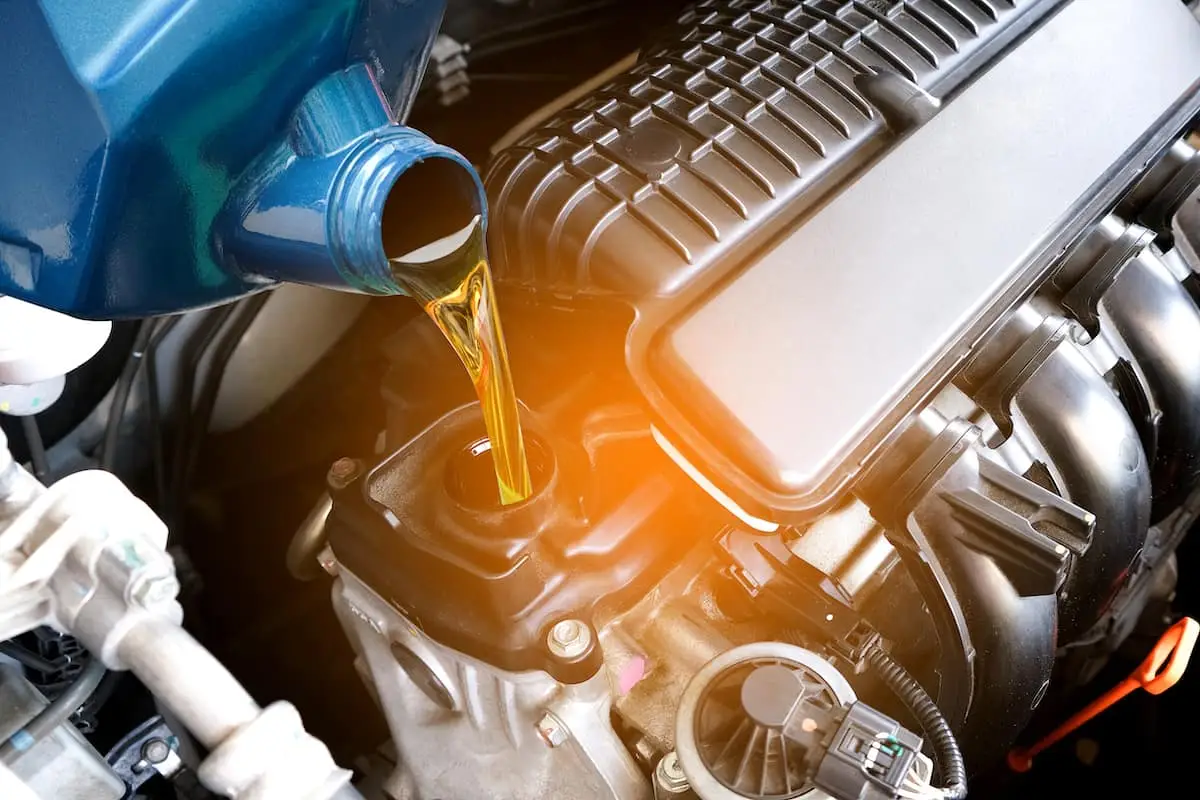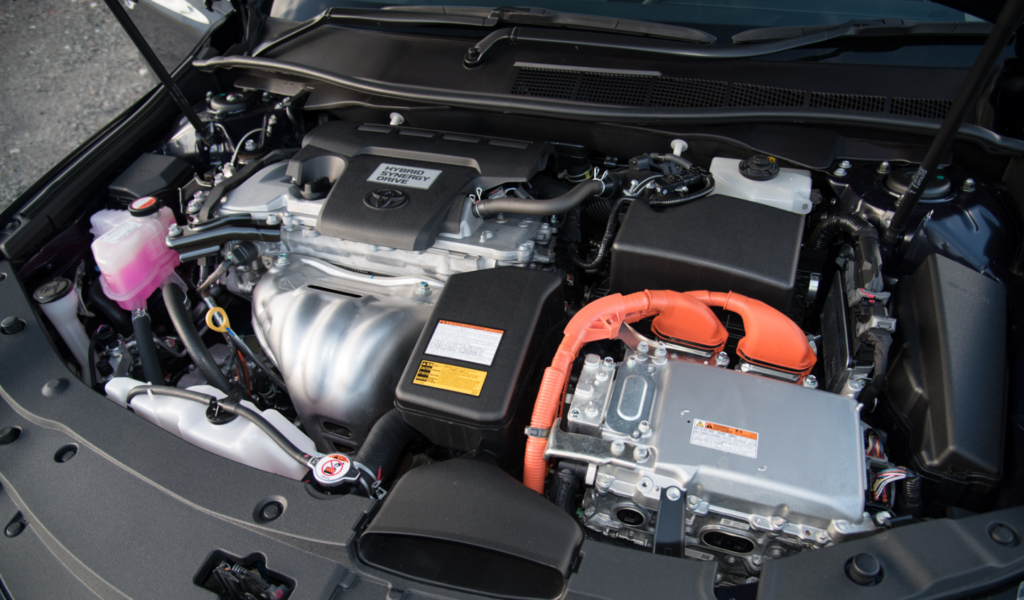The 2025 Camry Oil Change: A Comprehensive Guide
By admin / August 17, 2024 / No Comments / 2025

The 2025 Camry Oil Change: A Comprehensive Guide
The 2025 Toyota Camry, a perennial favorite in the mid-size sedan market, promises a blend of reliability, comfort, and efficiency. As with any vehicle, regular maintenance is crucial to preserving its performance and longevity. Among the most essential tasks is the oil change, a procedure that ensures optimal engine health and prevents costly repairs down the line.
This comprehensive guide will delve into the intricacies of the 2025 Camry oil change, covering everything from understanding the importance of regular oil changes to the different types of oil and the best practices for DIY maintenance.
Why Oil Changes Matter: A Look Under the Hood
Engine oil serves as the lifeblood of your Camry, lubricating moving parts, reducing friction, and preventing wear and tear. Over time, oil breaks down, losing its viscosity and protective properties. This degraded oil can lead to:
- Increased Engine Wear: Friction between moving parts increases, leading to accelerated wear and tear, potentially resulting in costly repairs or even engine failure.
- Reduced Fuel Efficiency: Thickened oil creates resistance, forcing the engine to work harder, leading to increased fuel consumption.
- Engine Overheating: Oil acts as a coolant, transferring heat away from the engine. Degraded oil loses its cooling capabilities, potentially leading to engine overheating.
- Clogged Oil Filters: As oil degrades, it collects contaminants, clogging the oil filter and hindering its ability to remove debris from the engine.
The 2025 Camry Oil Change Schedule: Staying on Track
Toyota recommends oil changes for the 2025 Camry every 5,000 miles or six months, whichever comes first. However, this schedule can vary depending on factors like driving conditions and the type of oil used.
Factors Affecting Oil Change Frequency:
- Driving Conditions: Frequent stop-and-go traffic, towing, or driving in extreme temperatures can accelerate oil degradation, necessitating more frequent oil changes.
- Oil Type: Synthetic oil typically lasts longer than conventional oil, allowing for longer intervals between oil changes.
- Vehicle Usage: Vehicles that are driven frequently or for long distances require more frequent oil changes compared to those driven infrequently.
Understanding Oil Types: Choosing the Right Formula for Your Camry
The 2025 Camry requires a specific type of oil, which is typically listed in the owner’s manual. Here’s a breakdown of the most common oil types:
- Conventional Oil: Made from crude oil, it’s the most affordable option but has a shorter lifespan compared to synthetic oil.
- Synthetic Blend Oil: Combines conventional and synthetic oils, offering a balance of performance and affordability.
- Full Synthetic Oil: Made entirely from synthetic components, it offers superior performance, longevity, and protection compared to conventional oil.
The Oil Change Process: A Step-by-Step Guide
While a professional oil change is recommended, you can perform the procedure yourself with the right tools and knowledge. Here’s a detailed guide:
1. Gather Your Supplies:
- Engine Oil: Refer to your owner’s manual for the recommended type, viscosity, and quantity.
- Oil Filter: Ensure you purchase the correct filter for your Camry model year.
- Oil Drain Pan: A large pan to collect the used oil.
- Wrench or Socket: To loosen the oil drain plug.
- Filter Wrench: To remove the oil filter.
- Gloves: To protect your hands from oil and dirt.
- Safety Glasses: To protect your eyes from potential splashes.
- Rag or Shop Towels: To clean up spills and messes.
2. Prepare Your Vehicle:
- Park on Level Ground: Ensure the vehicle is parked on a level surface and engage the parking brake.
- Warm Up the Engine: Allow the engine to warm up for a few minutes to thin the oil and make it easier to drain.
- Locate the Oil Drain Plug: The drain plug is typically located on the bottom of the oil pan.
- Locate the Oil Filter: The filter is usually located on the side of the engine block, close to the oil pan.
3. Drain the Old Oil:
- Place the Drain Pan: Position the drain pan directly beneath the oil drain plug.
- Loosen the Drain Plug: Using a wrench or socket, carefully loosen the drain plug.
- Allow the Oil to Drain: Let the oil drain completely into the pan.
- Tighten the Drain Plug: Once the oil has drained, replace the drain plug and tighten it securely.
4. Replace the Oil Filter:
- Loosen the Oil Filter: Use a filter wrench to loosen and remove the old oil filter.
- Clean the Filter Housing: Wipe the filter housing clean with a rag or shop towel.
- Apply New Oil to the Filter: Lightly coat the rubber seal on the new filter with fresh oil.
- Install the New Filter: Screw the new filter onto the housing, tightening it by hand until snug. Do not overtighten.
5. Add New Oil:
- Pour in New Oil: Slowly pour the recommended amount of new oil into the engine oil filler neck.
- Check the Oil Level: Allow the oil to settle for a few minutes, then check the oil level using the dipstick. Ensure it falls within the "Full" mark.
- Start the Engine: Start the engine and let it idle for a few minutes to circulate the new oil.
- Double-Check Oil Level: After the engine has idled, turn it off and re-check the oil level. Add more oil if necessary.
6. Dispose of Used Oil and Filter:
- Recycle Used Oil: Dispose of the used oil properly at a designated recycling center or oil change shop.
- Discard Used Filter: Dispose of the used filter according to local regulations.
DIY vs. Professional Oil Change: Weighing the Options
While performing your own oil change can save money, it’s essential to weigh the pros and cons:
DIY Oil Change Advantages:
- Cost Savings: DIY oil changes can save you a significant amount of money compared to professional services.
- Control Over Materials: You can choose the type and quality of oil and filter that best suit your needs.
- Convenience: Performing the oil change yourself allows you to do it at your own pace and schedule.
DIY Oil Change Disadvantages:
- Time Investment: DIY oil changes require time and effort, especially if you’re unfamiliar with the process.
- Potential Mess: Oil changes can be messy, and improper handling can lead to spills and contamination.
- Safety Risks: Handling oil and working under a vehicle poses certain safety risks if proper precautions are not taken.
Professional Oil Change Advantages:
- Convenience: Professional services offer quick and convenient oil changes, saving you time and effort.
- Expertise: Technicians are trained and experienced in performing oil changes correctly and safely.
- Disposal Services: Professional shops handle the disposal of used oil and filters responsibly.
Professional Oil Change Disadvantages:
- Cost: Professional oil changes can be more expensive than DIY services.
- Limited Control: You may not have as much control over the type of oil and filter used.
- Potential Delays: Waiting times at busy shops can be long, especially during peak hours.
Tips for Maintaining Your 2025 Camry’s Engine Health
- Follow the Recommended Oil Change Schedule: Stick to the manufacturer’s recommended oil change intervals to ensure optimal engine health.
- Use Quality Oil and Filters: Invest in high-quality oil and filters to maximize engine performance and protection.
- Check Oil Level Regularly: Monitor the oil level using the dipstick, and add oil if necessary.
- Inspect for Leaks: Regularly check for oil leaks under the vehicle and address any issues promptly.
- Consider Synthetic Oil: While more expensive, synthetic oil offers longer intervals between oil changes and better protection.
Conclusion: Keeping Your 2025 Camry Running Smoothly
The 2025 Camry, with its reputation for reliability and performance, deserves the best care possible. Regular oil changes are a fundamental part of this care, ensuring that your engine runs smoothly and efficiently for years to come. Whether you choose a DIY approach or opt for professional services, prioritize maintaining a consistent oil change schedule and using quality materials to keep your Camry in top condition.






